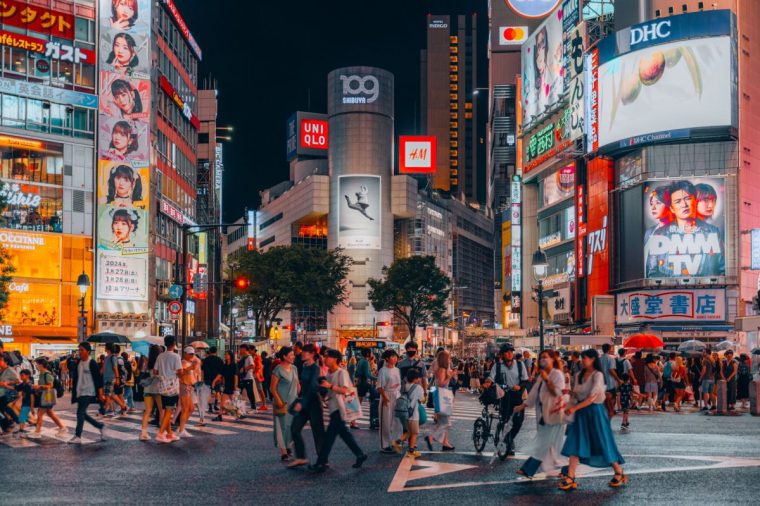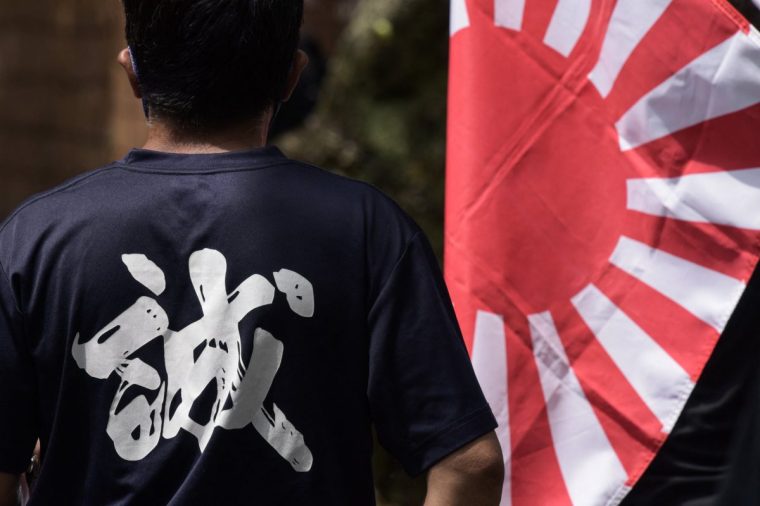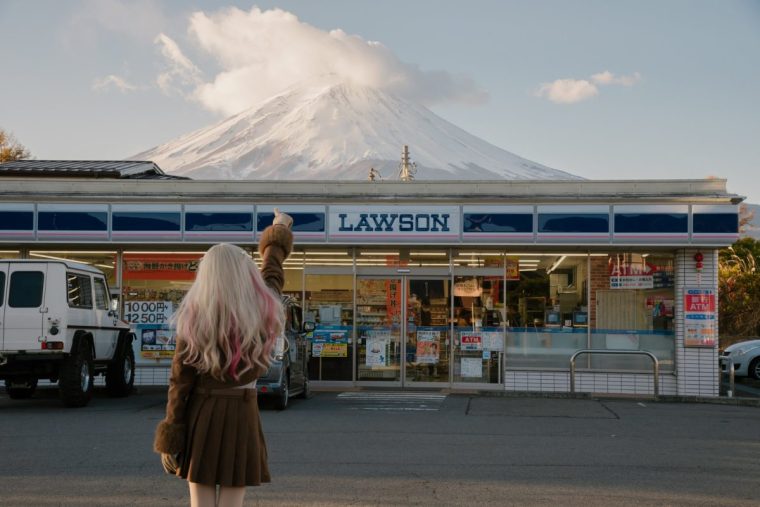Japan attracts millions of tourists a year – but rising numbers are stoking the far right
When Helen Nomura first moved to Japan in 2002, she could stroll through Kyoto’s temples without struggling for space.
The then-23-year-old from Weston-Super-Mare arrived on a Japan Exchange and Teaching (JET) programme shortly after graduating from Aberystwyth University.
“I remember landing in Tokyo for the first time and being absolutely bowled over by the neon lights,” Nomura told The i Paper. “The futuristic feel to the place at the time was impressive, to say the least.”
Nomura, now 46, met her Japanese husband in the country and decided to stay there, becoming a permanent resident. She ultimately settled far from the capital’s crowds, on the outskirts of a small city 500 miles away, where she lives with her husband and their two daughters, and she sees herself spending the rest of her life there.
However, she feels that the surge in tourists over recent years has made it difficult for her family to do simple things like book domestic holidays.

“I avoid the golden trail like the plague,” she says, referring to the major tourist route of Tokyo, Mount Fuji, Osaka and Kyoto. “We’re travelling next March and I’ve already booked our hotels, but even then that was hard as most places were booked out for cherry blossom season. This would not have happened even 10 years ago.”
A record 36.9 million visitors flocked to Japan in 2024, according to the Japan National Tourism Organisation (JNTO). This beat the previous record, set in 2019, by five million.
And there is no indication that the numbers are slowing down – the latest data from JNTO shows that between January and July arrivals reached almost 25 million, with the UK leading among European countries and South Korean visitors taking first place overall.

Nomura says the tourist boom contributes to the Japanese economy, but there are frustrations over locals having to pay the tourist tax as well as the rise in the cost of living.
Beyond rising costs and crowded trains, Nomura also worries about something deeper – the political atmosphere that mass tourism is helping to shape.
She says there is an increase in the far right, with the old Rising Sun flag, with its 16 rays coming out of a red disc, becoming more visible on the streets.
“This is usually a sign someone is supporting that side of things, and the amount of tourists coming in has definitely contributed,” she tells The i Paper.

Back in July, Japan’s right-wing populist party Sanseitō won 14 seats out of 124 up for grabs in elections for the upper house of Japan’s National Diet. Whilst it does not sound like a big number, the party – which was founded in 2020 and has the slogan Japanese First – only won one seat in elections held in 2022.
Sohei Kamiya, the party’s leader, focused his campaign on the influx of foreign residents and overtourism.
“It sounds strange that tourism can affect politics but here we are,” Daniela Ashford, a Briton who has lived in Japan for more than two decades, tells The i Paper.
The 51-year-old moved to Tokyo as an English teacher by way of Manchester and Brighton and cannot remember ever seeing Japan as packed with visitors. She said that trying to get across Shibuya Crossing, a popular tourist spot in Tokyo, was “annoying”, because people now stood there with selfie sticks not realising that others have places to be.

“My biggest concern though is being put in the same boat as other tourists when actually I’m a long-term resident,” she says. “It can be uncomfortable, especially with the current anti-foreigner sentiment.”
Last year, Japanese officials put up a screen to deter tourists from clogging the streets in front of Lawson convenience store, a photo spot well-known for the Instagrammable views of Mount Fuji behind it.
The government has also discussed promoting lesser-known regions, using the increased revenue from the tourist tax.
For Matthew Watts, this is not enough. Watts has worked in the tourism industry in Japan for over a decade and says that officials are not talking to people outside Tokyo, Kyoto and Osaka in order to get their input.
Like Nomura and Ashford, he recognises the financial benefit tourism brings, but says that foreign residents are often lumped in with badly behaved tourists.
“It can make life just that little bit more uncomfortable,” he says. It also could have larger impacts on the direction the country is going, politically.
“I wonder what it will be like in the next elections,” Watts adds.
